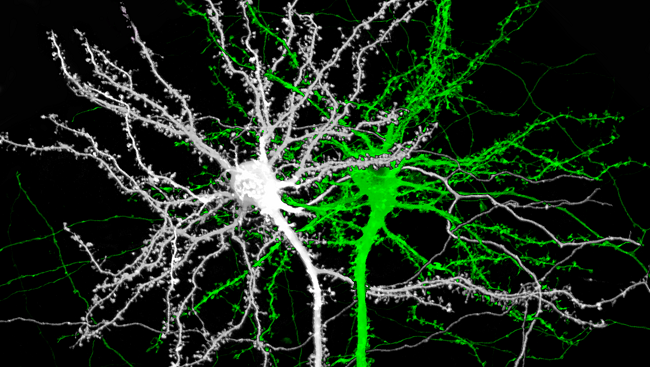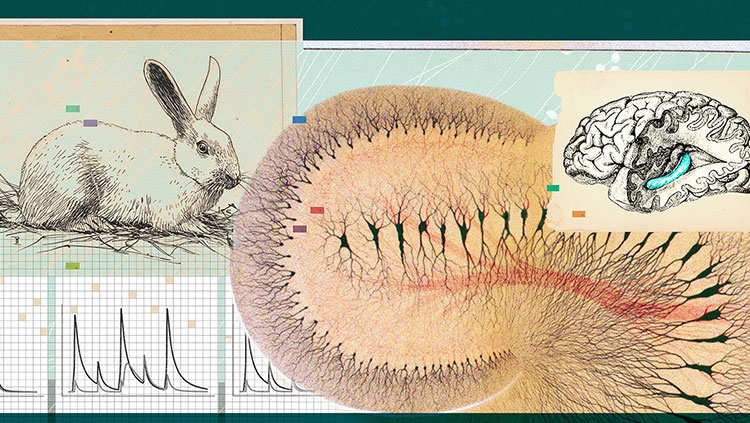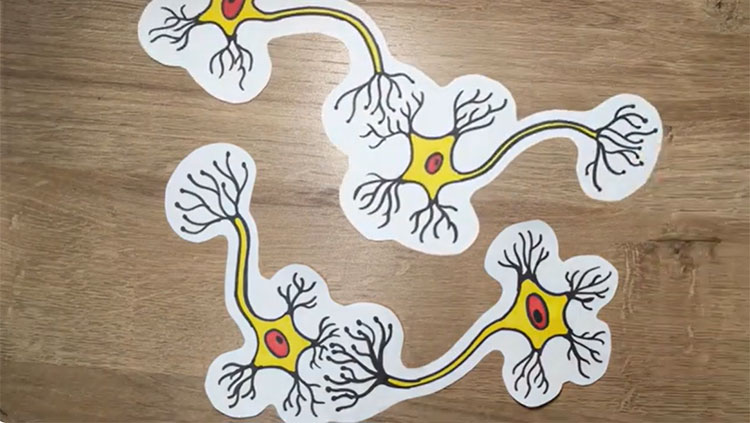The Structure of Memory
- Published24 Feb 2014
- Reviewed24 Feb 2014
- Author Michael W. Richardson
- Source BrainFacts/SfN

Memory, from your earliest thoughts to today’s grocery list, is a complex process necessary for cognition. The ability to form long-term memories requires changes in the synapses — the structures neurons use to transmit information.
To better understand how these changes take place, scientists genetically altered mice to lack a molecule that supports the synapse. They found that neurons in mice without this molecule (pictured in white) compensate by generating larger dendritic spines — the visible bumps on the tree-like branches above — compared with normal mice (pictured in green). This small change improved memory in the mice.
CONTENT PROVIDED BY
BrainFacts/SfN
Also In Learning & Memory
Trending
Popular articles on BrainFacts.org


















